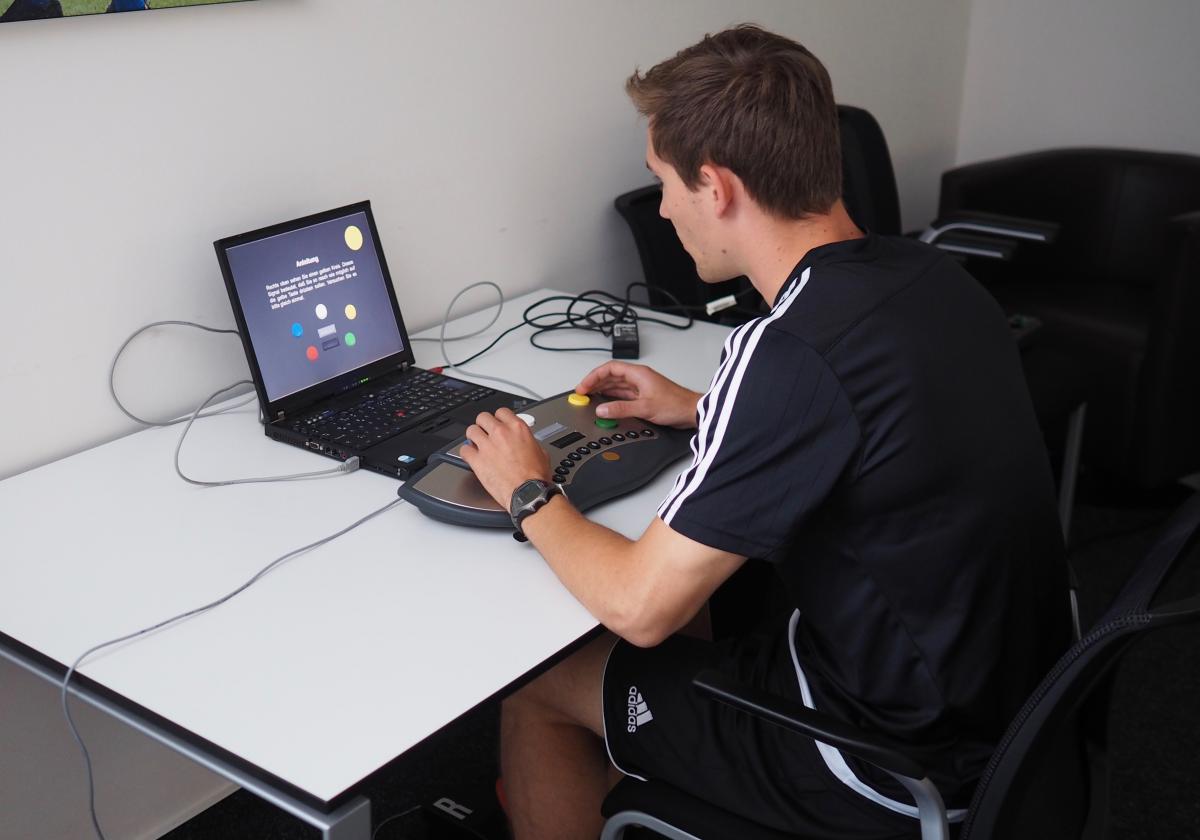Current Students Projects
Current Scholarship Projects
Comparative Analysis of Medical (and related) services for Football Teams in Different Countries (Benedict Gondwe, Msc Südafrika)
Medical and performance departments are integral components of multidisciplinary teams in football clubs, especially in the prevention and management of sport injuries. For example, the medical unit has a crucial responsibility in collaborating with the coach(es) and the support team to manage the health-related risks of competing athletes. It is essential for medical units to find the appropriate ethical and operational equilibrium between safeguarding health and enhancing performance. The optimisation of the structure of medical and performance support teams is strategically important for all clubs and sporting organisations around the world. However, there is limited information that details the operational practises and organisational structures adopted by medical departments in professional football in different countries. Understanding typical professional practices is valuable to clubs, federations, practitioners, and researchers. The doctoral project aims to provide an extensive description, overview and comparison of the organisation, operations and internal processes of medical and performance teams supporting professional (men’s and women’s) football teams across the world. This project is funded and in cooperation with the German Football League.
Evaluation of cardiovascular screening in football (Mahnaz Davarnia, MSc, Iran)
Pre-participation medical screening has gained widespread acceptance as a means to identify athletes at risk of diseases such as cardiovascular diseases (CVD), which can lead to sudden cardiac death (SCD). The objectives of athlete screening include reducing injuries, minimizing disease complications, and preventing sudden death through lifestyle modifications, which may involve restrictions on participation in competitive sports. However, there is no universally adopted protocol for screening athletes. Despite the support of routine pre-participation screening by organizations like the European Society of Cardiology (ESC) and the American Heart Association (AHA), there is significant disagreement regarding the components of screening protocols used.
Therefore, the doctoral project will focus on evaluating screening protocols specifically tailored for football players. It will examine the cost-effectiveness of these protocols and their outcomes across representative countries. Additionally, it will explore how different countries implement and adapt these protocols, considering factors such as healthcare systems and resource availability.
Digital support for return to play decisions in football (Guangze Zhang, MPhil, China)
Injuries are common in professional football. Decisions surrounding the return to play (RTP) hold particular importance for stakeholders because of competitive and financial implications. Foreseeing potential outcomes can inform RTP decision-making, with the risk of subsequent injury influenced by a combination of physical, mental, and contextual factors. While data-driven approaches may not be feasible for football injury prediction due to data sparsity, imbalanced data, and incomplete information, other fields have demonstrated success by integrating human reasoning with deliberate simplification to achieve accurate predictions in complex situations with scarce precedents.Therefore, the doctoral project aims to propose a hybrid-intelligence approach to support RTP decision-making process in football. This project is funded and in cooperation with German Football Association and designed as a joint degree in cooperation with the University of Groningen.
Football in Heat (Edgar Schwarz, M. Sc., Germany)
In the 2014 world cup FIFA introduced the mid-game water break. Arguably because a Brazilian labour court decided, that when wet bulb globe temperature exceeds 32°C, this needs to be implemented. The question is what’s the evidence behind this threshold? In the years since, different thresholds and various heat indexes have been developed, all of which can be questioned (e.g.: Football Australia: Temperature > 31°C or WGBT > 26°C = cooling breaks, WGBT > 28°C = reschedule). Are there actually health risks for players when these thresholds are exceeded? Besides health, the performance of players could be impaired at even lower temperatures than these thresholds. These include physiological aspects like less total distance running and less high-speed running but might also include cognitive aspects like decision making or risk taking although research on this topic is scarce. Finally, an important question for the practical field is how these performance decrements could be countered. For example with effective and applicable cooling strategies. This project is funded and in cooperation with the German Footbal League and designed as a joint degree in cooperation with the University of Technology Sydney, Australia.
Sudden Cardiac Death in Football (Ana Ukaj, MD, Serbia)
This PhD study aims to investigate the circumstances of sudden cardiac death in athletes as well as primary and secondary prevention measures. The first study addresses the circumstances of SCD in football players (continuation of the prospective world-wide FIFA-SD registry). The second study will be focused on the secondary prevention of sudden cardiac death in sport clubs by estimating the level of knowledge of (cardiopulmonary resuscitation) CPR skills, the presence and content of an emergency action plan and automated external defibrillator (AED) usage. The goal of the third study will be to compare resting ECGs of athletes of different sports with current guidelines regarding characteristic features of the athlete’s ECG. This is also compared with echocardiographic measurements of the athletes that participate in variety of sports in order to determine the correlation between resting ECG findings in different types of sport and echocardiographic features.
Position-specific Nutrition for Elite Football Players (Dolores Dravinec MSc, Croatia)
In the World Cup tournaments, the greatest number of goals is scored by strikers (~54%), followed by midfielders (~33%) and defenders (~2%). However, the goal is rarely scored by an individual player and therefore a great physical and tactical role of all players is important for the team success. Detailed analysis of soccer matches shows differences in physical and tactical activity between playing positions. Literature shows the position-specific variability in the overall running distances, number of high-intensity runs and sprints during a typical game. Player’s individual position in the match is additionally strongly influenced by the team's specific strategy and tactical definition, but also by a player’s physical profile and fitness level. Demands of a football match require the high level of aerobic energy production and large anaerobic energy turnovers, which consequently results in high energy expenditure. Position-specific physiological demands may potentially result in position specific energy requirements, which could be in that case supported by specifically prescribed nutrition.
Therefore, the doctoral project will focus on investigating the relation of position specific physiological requirements and related energy expenditure in elite football. The main aim of the study is to investigate weather differences in physiological position specific requirements result in the need for position specific nutrition to support the optimal football performance. This project is conducted in cooperation with the German Football Association (DFB-Akademie) and the German Sport University Cologne (DSHS Köln).

Foto: www.dfb-akademie.de
Neuro-Athletic Training in Football (Cameron Scullard MA, South Africa)
Football can often be seen as one of the most physically demanding sports, not just in terms of the intensity and volume of movement, but also the quality of those movement patterns in which the body functions in order to enhance biomechanical performance and injury prevention. The concept of neuro-athletic training involves the functioning of the neuronal processes, linked to the brain and nervous system, which control the effectiveness and efficiency of all motoric output in the form of bodily movement. Traditionally, football has had a distorted perception on the importance of neuronal sciences and its direct effect of optimizing physiological capacities and subsequent football-specific movements. The nature of football, with position-specific demands, incorporates the use of many sensory motor functions to allow for dynamic balance, reaction time, peripheral vision, rapid changes in speed and distance perception. The sensorimotor system utilizes the visual, vestibular and proprioceptive functions to guide player’s spatial awareness of the body, particularly in relation to the ball, other players and aerial duels.
Therefore, this doctoral project focuses on a scientific approach to investigating neuro-athletic training for the enhancement of physical performance and football-related injury surveillance and prevention. The main aim of the study is to investigate the effects of eye and balance sensorimotor-related exercises on neuronal and biomechanical deficits, as well as the performance diagnosis of football-specific movements. The project is conducted in collaboration with the German Football Federation (DFB-Akademie) and Prof. Dr. Dr. Claus Reinsberger, neurologist and head of the Institute of Sports Medicine at University of Paderborn.
Infectious diseases in football (Monica Duarte Munoz, Physician, Msc, Mexico)
Football players undergo transient modifications in immune function after training or a playing. To date, the clinical impact of said modifications has not yet been clearly established. However, they may signify impairment in immune function that might render football players prone to infectious diseases, which in turn cause a decrease in performance and, more importantly, time loss. Although most research has focused on injuries, infections are the second most important cause of time loss in football. Moreover, training or playing during an infectious episode can have catastrophic consequences (e.g. myocarditis, dilated cardiomyopathy).
Therefore, it is important to determine the magnitude of the alterations occurring in immune function in football players as well as their potential clinical repercussions. This doctoral project aims to identify the impact of football training and gameplay on the immune system and whether or not this can translate to an increase in the risk of infectious illnesses.
Muscle Injuries in Football (Ida Bo Steendahl BSc MSc, Denmark)
Within both professional and amateur football, muscle injuries continues to be a problem, with an unacceptably high rate of recurrent injuries. Within prevention research, there are a few different facets to consider. For muscle injuries, the main aspects focus on epidemiology, primary and secondary prevention. Epidemiology is an important factor, since the first step to achieve a prevention strategy, is to clearly define the problem. Primary prevention covers the actions taken to prevent muscle injuries in the first place, and secondary prevention regards the processes following an injury up until return to play and any further precautions taken to prevent re-injury. This doctoral project will therefore have a multifaceted approach incorporating all three aspects, while aiming to bridge the gap between the scientific literature and the applied settings of football. The project is conducted in cooperation with the German Football Federation (DFB-Akademie).
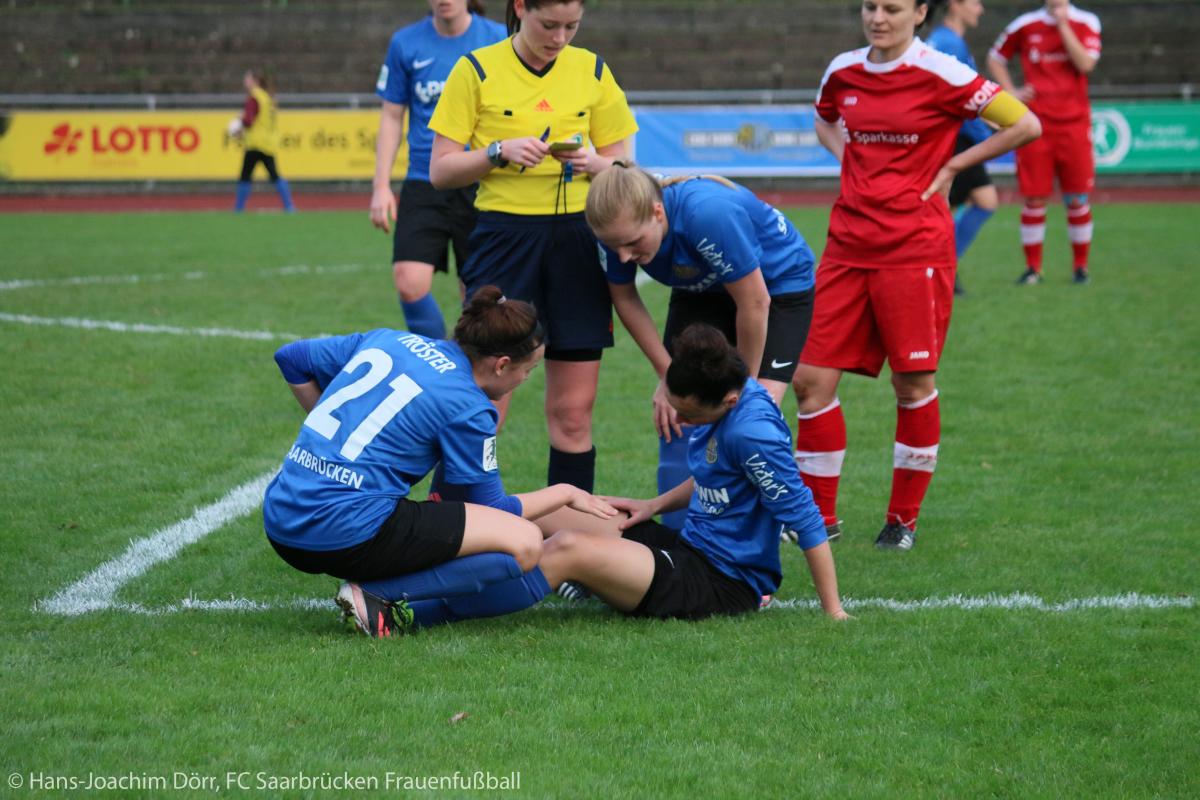
External Projects
Training load and maturation (Lukas Arenas, M. Sc., Germany, 1. FC St Pauli)
The development of home grown players for the professional game can be considered as a key strategic issue for youth football academies. Talented and maturing children are a unique population, which are exposed to high training loads with a necessity of a developmental training program including load monitoring, injury surveillance and prevention to maximize the spend training time and improve performance. Research suggests that players goring through their adolescent growth spurt are exposed to a period of increased risk for injuries and that therefore training load and recovery should be more carefully adjusted during this phase of rapid. Not modifying load and training content could result in poor load management which may contribute to the elevated injury risk of this population. Therefore, to truly impact the health of those active individuals, more effort needs to be placed on translating proven preventive methods into practice. For that reason, the current state of application and consideration of biological maturation at German Academies is surveyed. Following on from this, further insights will be gained through interviews in order to develop profitable recommendation for coaches. This project is co-supervised by Prof. Sean Cumming and conducted in cooperation with the University of Bath in England.
Minimally invasive fitness monitoring in elite football players (Jan Schimpchen, M. Sc., Germany, Benfica Lissabon)
Cardiocirculatory fitness is a critical component of performance in many sports. To produce optimal adaptations, it is paramount to establish an appropriate balance between a training load that is potent enough to sufficiently stimulate the athlete’s physiological systems and a subsequent recovery period which is adequately extensive to prevent the athlete from experiencing a state of non-functional overreaching or overtraining. Information on an athlete’s physical response to a given training stimulus can be used to optimize performance levels by adjusting training frequency, volume, and intensity. To that end, practitioners commonly use maximal or near-maximal physical fitness tests aiming at gaining further insight into an athlete’s physiological determinants or sport-specific endurance capabilities. However, due to the required time, resources and their exhaustive nature, these types of tests are considered inadequate by many practitioners for frequent implementation within an applied setting as their execution might interfere with the prescribed training program or preparation for any upcoming competition. Consequently, they are often employed only sparingly throughout a year at specific time points and therefore unable to detect more short-term fluctuations in an athlete’s performance levels. This might in turn result in inappropriate training prescriptions and suboptimal performance levels.
Therefore, it is the aim of this doctoral project to identify minimally invasive, submaximal protocols which can be easily applied, analyzed, and used to derive meaningful information regarding alterations in player fitness in elite soccer players.
Injury Prevention in Football (Rilind Obertinca, Sports Physiotherapist, MSc, Kosovo)
Although football is one of the most popular sports worldwide, it carries a risk of injury for players, both at professional and amateur level and in all age-groups. Studies show that the number of injuries tends to increase with age, with most injuries being located in the lower extremities, particularly at the ankle, knee and thigh. Given the high importance of injury prevention, recently, the focus on developing injury prevention programs has increased significantly. Some of these programs are designed to prevent specific injuries, such as ACL or hamstring injuries, while others are designed to prevent overall injuries in football. The aim of this doctoral project is to devlope a new injury prevention program and to analyze its effect on prevention of overall injuries in football payers. Rilind Obertinca holds a Master of Science in Sports Phyiotherapy from Lithuanian Sports University, Lithuania and a Bachelor of Science in Physiotherapy from University of Prishtina, Kosovo.
Cognitive Performance in Football (Rina Meha, Clinical Psychologist, MSc, Kosovo)
Every football action includes a cognitive element. During the game players are exposed to a large number of stimuli, and it is continually required from them to make accurate decisions towards these stimuli. A high level of cognitive skill is required to enable players to attain their physical and technical potential. Skills such as game intelligence, spatial perception, anticipation, reaction time, attention shifting, and pattern recognition are relevant cognitive skills. These skills can be increased by ensuring training sessions to train not just the physical components but also challenges and neural pathways. An improved cognitive performance has a positive effect on sport performance and may enable a reduction of recovery time after an injury. Therefore, the aim of this project is to investigate the effect of an injury prevention program on cognitive performance in young football players. Rina Meha holds a Master of Science in Cognitive Neuropsychology from University of Sheffield, Greece and a Bachelor of Science in Psychology from the University of Prishtina, Kosovo.
Sudden Cardiac Death in Football (Ana Ukaj, MD, Serbia)
This PhD study aims to investigate the circumstances of sudden cardiac death in athletes as well as primary and secondary prevention measures. The first study addresses the circumstances of SCD in football players (continuation of the prospective world-wide FIFA-SD registry). The second study will be focused on the secondary prevention of sudden cardiac death in sport clubs by estimating the level of knowledge of (cardiopulmonary resuscitation) CPR skills, the presence and content of an emergency action plan and automated external defibrillator (AED) usage. The goal of the third study will be to compare resting ECGs of athletes of different sports with current guidelines regarding characteristic features of the athlete’s ECG. This is also compared with echocardiographic measurements of the athletes that participate in variety of sports in order to determine the correlation between resting ECG findings in different types of sport and echocardiographic features.
Head Injuries in Football (Max Smith MSc, USA)
In the 2018 FIFA World Cup, concussion protocol was not observed to have been followed after 63% of head collision incidents in players showing 2 or more symptoms of concussion. This is not significantly different from the 2014 FIFA World Cup, and remains an area of football that has yet to be taken seriously. As a global game there are varying levels of interpretation and required protocol throughout different federations. There is a need for the standardization of concussion protocol around the world and quality research to help make educated decisions on how players are treated and cared for. There are rule changes being made at youth levels eliminating or reducing heading without any empirical evidence to support such decisions. As retired footballers age there are questions being asked about cognitive deterioration or chronic traumatic encephalopathy (CTE) being associated with concussive or sub-concussive trauma from repeated blows to the head. The more the teams, officials, and parents are educated about the severity of head injuries in football, the more reporting and precautions we will hopefully start seeing around the world.
Therefore, the doctoral project will focus on investigating head injuries in football focusing on changes in cognitive function in youth and adult players, preventative measures to reduce number and severity of head injuries, and education of head injuries in football. This project is conducted in cooperation with Prof. Dr. Dr. Claus Reinsberger, neurologist and head of the Institute of Sports Medicine at University of Paderborn.
Alumni Projects
Monitoring the elite youth soccer has gained considerable interest in both research and practice in the past few years. This typically encompasses the quantification of aspects of external and/or internal training load and its resultant acute and long-term psychophysiological responses. The purpose of monitoring youth athletes is to obtain information that may be used by coaches, medical and strength and conditioning staff, to make informed decisions about the effectiveness of training, recovery and injury management protocols. Currently, there is a paucity regarding the usefulness of commonly used measures to infer an athlete’s physiological status in youth soccer and its short- and long-term implications regarding changes in fitness and injury risk. Therefore, the aim is to provide a critical appraisal of the monitoring tools that might be adopted by practitioners working in elite youth soccer trying to manage exercise-induced neuromuscular, mechanical, biochemical, hormonal and metabolic and subjective wellbeing status in elite youth soccer players throughout adolescence. This project is co-supervised by Prof. Barry Drust and conducted in cooperation with Birmingham University in England.
Perceptual and Cognitive Training (Adam Beavan BSc Honours, Canada) - Finished
When watching elite football, there are many occasions when the players display moments of sporting brilliance. For example, the ‘no look pass’ is one of many examples of how athletes demonstrate their exceptional ability to monitor the activities and positions of multiple players simultaneously. Moreover, success in team-sports requires the athletes to understand how those positions will change over time, and even predict what their opponents' next moves will be. These abilities can be attributed to the athlete’s high levels of experience and how well they can ‘read the game’. Since 1965, psychologists have attempted to examine what perceptual-cognitive abilities expert athletes possess in order to achieve such a skill. Yet despite the large body of literature, the question of whether training these abilities transfers to in-game performance remains. Therefore, the doctoral project aims to address this question, and attempt to strengthen the link between improvements in both perceptual-cognitive skills and transfer these skills to in-game performance. The project is conducted in cooperation with the German Football-Federation as well as TSG 1899 Hoffenheim Football club, and designed as a joint degree in cooperation with the University of Technology Sydney, Australia.
Development of an automatic system for match and atraining analysis (Mat Herold, BSc, MSc, USA) - Finished
Investigate the applicability of using machine learning for coaches and analysts in professional football. Machine learning, a form of artificial intelligence that uses algorithms to detect meaningful patterns based on positional data, is a relatively new concept in football and little is known about its usefulness to identify performance metrics that determine match outcome. Concurrently, a demand has been identified to further understand offensive principles in order to create more goal-scoring chances. Through combining the work of data scientists with coaches and match analysts, the aim is to discover where machine learning can improve upon the applied knowledge and practices related to attacking play. The project is conducted in cooperation with the German Football-Federation.
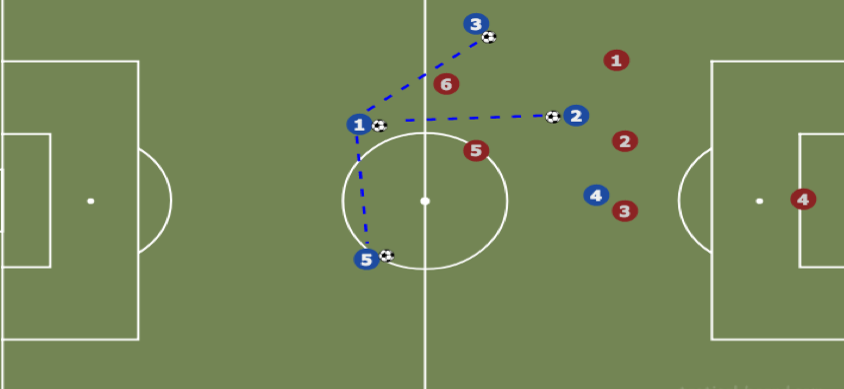
Physiological Profiling of Female Football (Ross Julian BSc MSc, England) - Finished
In recent years, the level of professionalism and participation within female football has rapidly increased. With the game no longer in its infancy; there has been an increase in both the interest afforded to, and scientific research in, many aspects of female football. Presently, the majority of research has been conducted on the physical characteristics, physiological responses to training and match play and, more extensively injuries in female football. However, unaccounted for in many of these studies are the physiological properties which are independent for females and therefore accuracy and practicality of the results may be effected.
Therefore, the doctoral project in the realms of physiological profiling in female football, explores these unique occurrences which are individual to females. The main outcome investigates whether the different stages and, the fluctuation of hormones (with corresponding changes in physiological response) throughout the menstrual cycle impacts physical football performance and whether this can be managed.
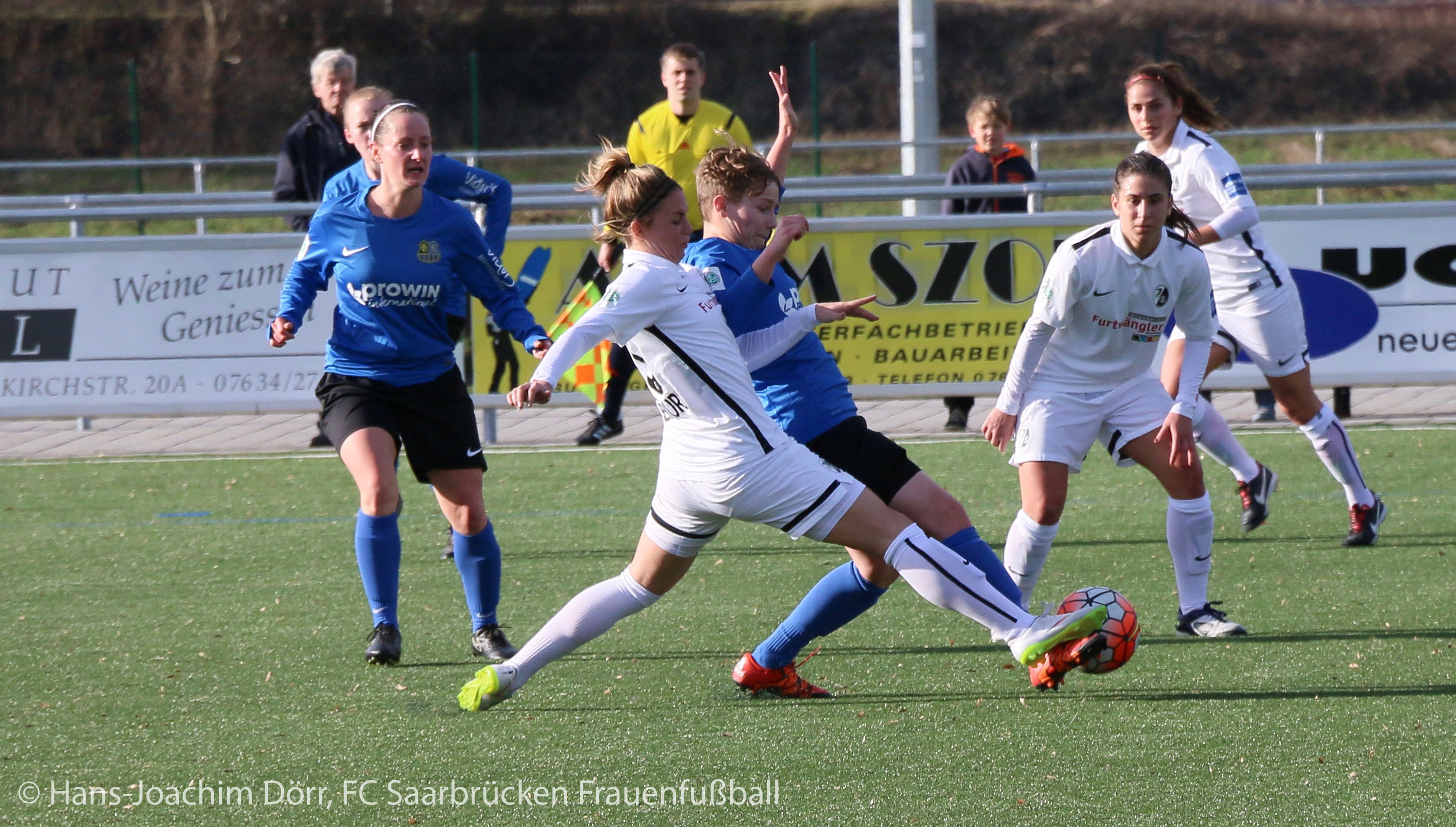
Individualising Fatigue & Recovery in Football (Denny Noor BSc Honours, Australia) - Finished
In elite football, the assessment of current player fatigue status is a critical task aimed at fine-tuning training prescriptions that balance training load and sufficient rest, in order to maximize player adaptation and/or performance. At present, research concerning this topic has fixated primarily on identifying valid and reliable surrogate measures of fatigue, without any definitive solution. Additionally, growing awareness of the need to consider player individuality when assessing fatigue status has been recommended. However, no clear individualized monitoring approach has yet to be proposed, with current fatigue diagnostics predominantly based on group means and main effects that provide only arbitrary standards or normal ranges for fatigue markers.
Therefore, the intent of the doctoral project will be to explore an individualized approach to fatigue monitoring in football. With the primary research aim to provide a valid and reliable determination of fatigue status in football players, using selected fatigue-related parameters that are longitudinally examined in order to establish individual-based reference ranges and thresholds. The project is designed as a joint degree in cooperation with the University of Technology Sydney, Australia.
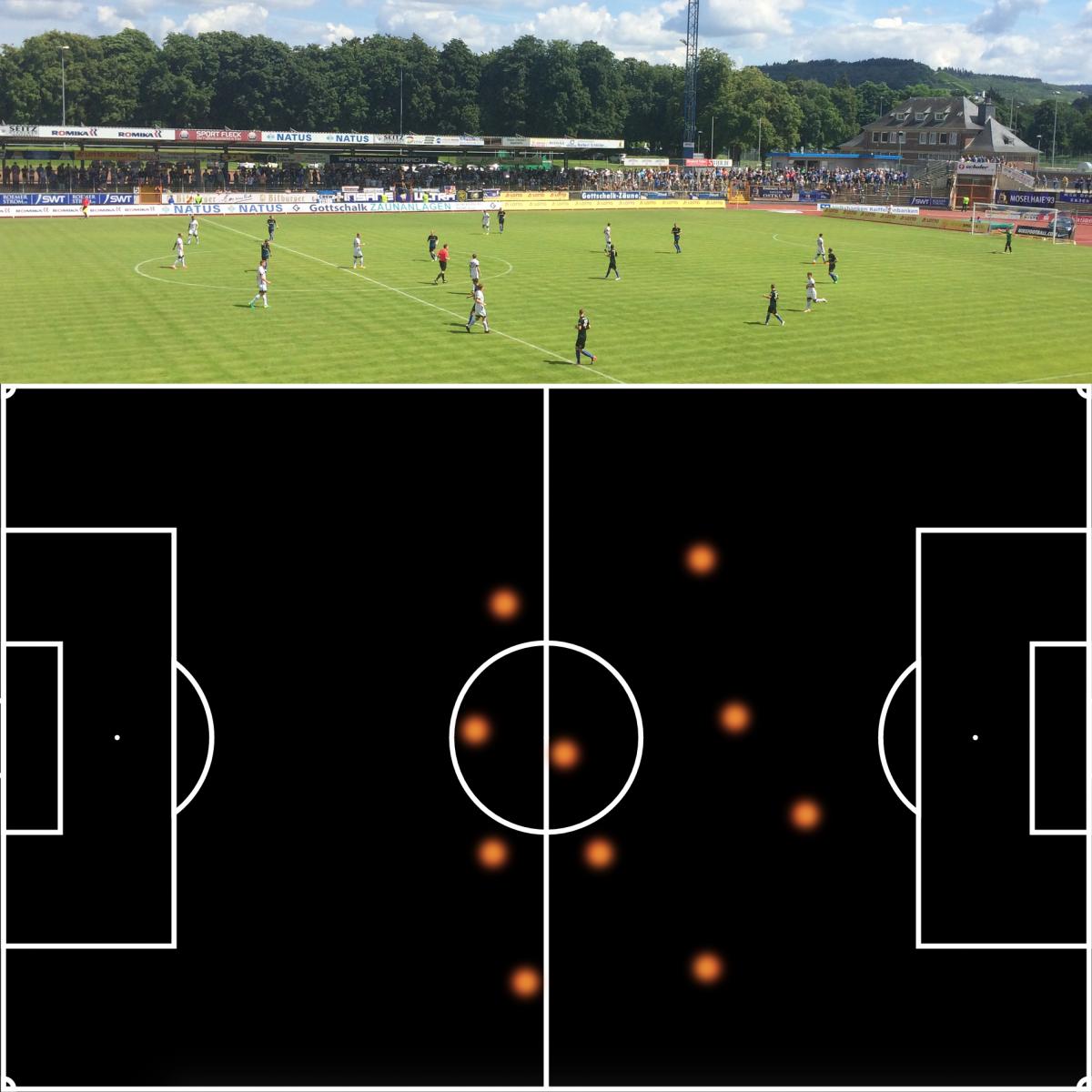
Mental Fatigue in Football (Chris Thompson BSc PgCert, England) - Finished
The physiological, technical and skill demands of elite football have been found to be very high, resulting in training and match induced fatigue. However, the vast majority of the literature has only investigated the effects of physiological related fatigue. “Fatigue” is a broad, subjective personal feeling and can be experienced both physically and mentally. Mental fatigue is an additional feeling of fatigue which is typically experienced following periods of intense cognitive exposure (i.e. high job workloads). Whilst research in mental fatigue dates back to 1891, only in recent years has this phenomenon been tested in football performance, with little still known on the subject. The current PhD study looks to investigate the cause of mental fatigue in elite football players, the effects of mental fatigue on football match play and interventions that may reduce the effects of mental fatigue. The project is conducted in cooperation with TSG 1899 Hoffenheim Football club, and designed as a joint degree in cooperation with the University of Technology Sydney, Australia.

